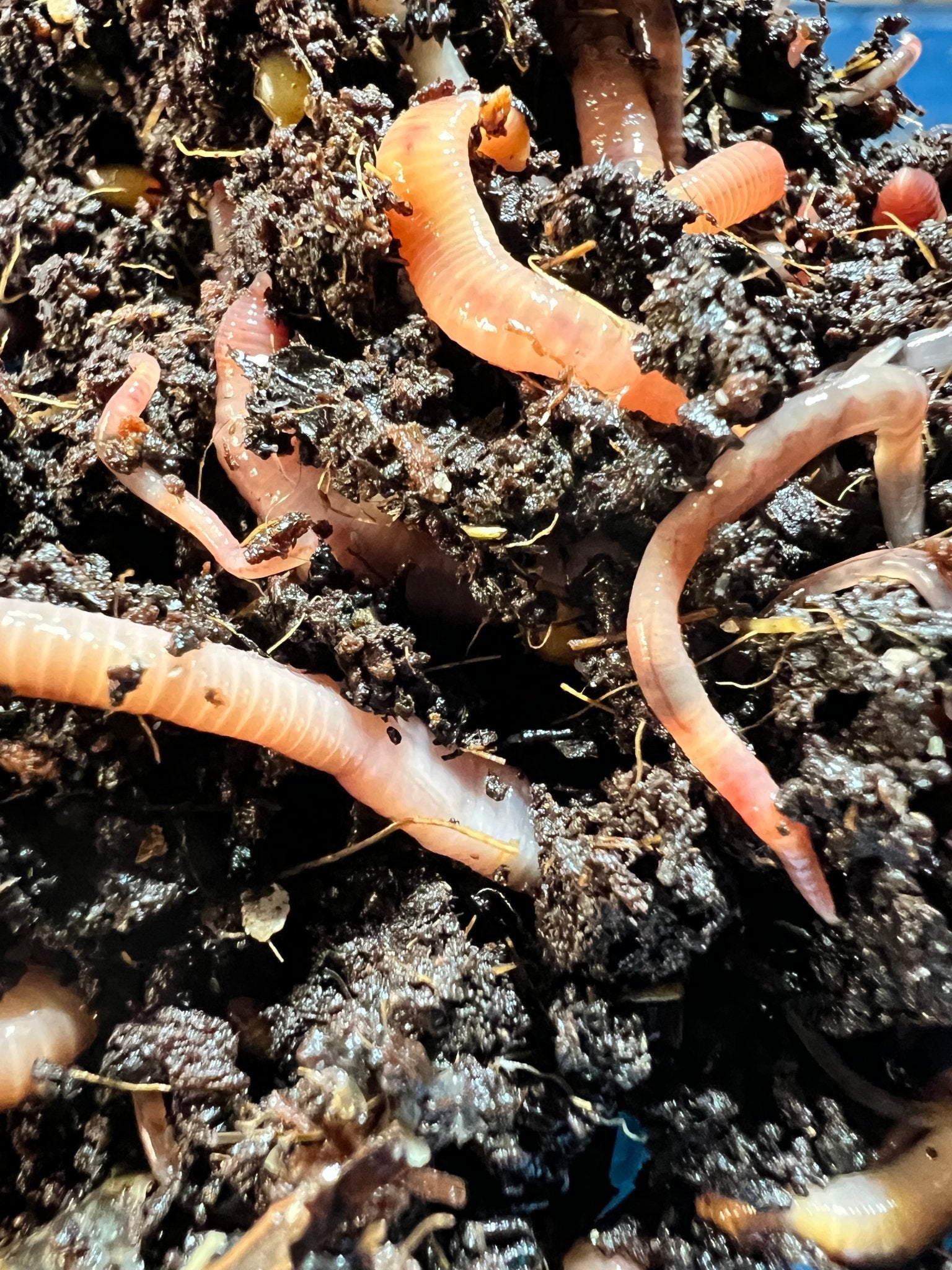Enhance Your Lawn Care Routine with Top-Quality Lake Hickory Bait Products
Enhance Your Lawn Care Routine with Top-Quality Lake Hickory Bait Products
Blog Article
Red Wigglers: The Unsung Heroes of Organic Waste Recycling
Red wigglers, or Eisenia fetida, offer as essential agents in the organic waste reusing process, changing disposed of materials right into important vermicompost. As the globe progressively seeks remedies to deal with waste buildup and boost agricultural efficiency, understanding the function of these worms ends up being vital.
What Are Red Wigglers?
The amazing strength of red wigglers, clinically known as Eisenia fetida, highlights their essential duty in organic waste recycling. These tiny, reddish-brown earthworms are usually located in disintegrating raw material, such as garden compost piles and manure loads. Lake Hickory Bait. Unlike other earthworm types, red wigglers grow in nutrient-rich atmospheres and are very efficient at breaking down natural materials, making them vital for vermicomposting

(Red Wiggler Express)In enhancement to their duty in waste decrease, red wigglers contribute to soil health by enhancing dirt framework and oygenation via their burrowing activities (Lake Hickory Bait). Their presence in composting systems not only enhances decomposition prices but also advertises a lasting approach to squander management, showing their value in environmental preservation initiatives
Advantages of Composting With Worms
Composting with worms, especially red wigglers, uses many benefits that improve both waste administration and soil health and wellness. These worms successfully damage down natural waste, transforming it into nutrient-rich vermicompost that enhances soil. This process increases disintegration, permitting for a quicker recycling of kitchen area scraps and other organic products contrasted to conventional composting methods.
Additionally, the vermicompost generated by red wigglers is including valuable microbes, which assist enhance soil framework, aeration, and moisture retention. This boosts the general health and wellness of plants, promoting strenuous growth and enhanced returns in yards and agricultural setups. In addition, using worms in composting reduces the production of greenhouse gases, such as methane, adding to a much more sustainable waste monitoring system.

How to Begin Vermicomposting
Developing a vermicomposting system is an uncomplicated process that can yield considerable advantages for both waste monitoring and dirt enrichment. To start, select a suitable container, such as a plastic bin or wooden box, with sufficient air flow openings to make sure correct air movement. The measurements need to preferably be about 2 feet by 3 feet, permitting enough room for the worms to grow.
Following, prepare bed linens product, which can include shredded paper, cardboard, or coconut coir. This bed linen must be moistened to produce an appropriate habitat for the worms. Once the bedding is in area, present red wigglers (Eisenia fetida) right into the container, commonly around one extra pound of worms for every single square foot of surface.
Complying with the positioning of worms, include organic waste, such as fruit and veggie scraps, coffee premises, and smashed eggshells. With these steps, you will properly launch a vermicomposting system that adds to lasting waste management and improves your dirt.
Maintaining a Healthy And Balanced Worm Container
(Red Wiggler Express)Maintaining a worm container growing requires routine focus and like ensure the wellness of the red wigglers and the find more effectiveness of the composting procedure. Proper upkeep begins with keeping track of the moisture degrees; the bin should be wet however not saturated. A great general rule is to keep a consistency comparable to a wrung-out sponge.
Oygenation is crucial. Delicately mixing the bed linen and food scraps every couple of weeks stops compaction and ensures that all worms have accessibility to oxygen. Furthermore, it is essential to feed the worms properly. A well balanced diet of fruit and veggie scraps, coffee grounds, and smashed eggshells ought to be supplied in small amounts to stay clear of overfeeding, which can cause odors and bugs.
Temperature regulation is another essential aspect. Red wigglers flourish in a series of 55 to 77 degrees Fahrenheit. If the bin comes to be as well hot or cool, the worms may come to be stressed out - Lake Hickory Bait. Lastly, occasionally look for indicators of wellness, such as worm populace development and the visibility of healthy spreadings. By vigilantly taking care of these variables, one can keep a durable and efficient worm bin.
Influence On Lasting Living
The successful upkeep of a worm bin not just profits the health and wellness of red wigglers but also contributes substantially to sustainable living techniques. By reusing organic waste, such as kitchen area scraps and lawn particles, red wigglers help divert substantial amounts of material from land fills. This reduction in waste not only reduces greenhouse gas discharges however likewise decreases the environmental concern connected with waste monitoring.
Moreover, the castings generated by red wigglers work as a nutrient-rich organic fertilizer, enhancing soil health and wellness and advertising plant development. This all-natural alternative to chemical plant foods supports sustainable agriculture and gardening techniques, reducing reliance on artificial inputs that can damage environments. Additionally, worm composting cultivates awareness of waste monitoring, encouraging individuals and neighborhoods to embrace even more sustainable habits.

Conclusion
In recap, red wigglers serve as essential factors to natural waste recycling with their efficient decomposition of organic products. By incorporating vermicomposting right into waste monitoring techniques, individuals and communities can dramatically decrease waste while advertising ecological sustainability.
Report this page